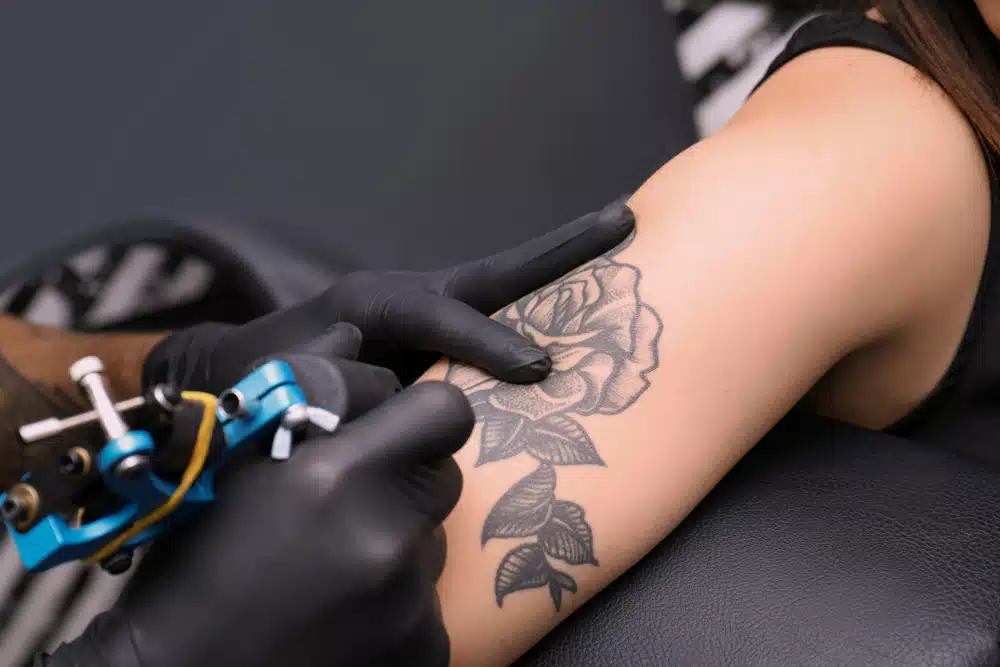
Additionally, these business investments have made it easier for operators to hire more talented artists and begin exploring new style trends that have further enhanced the appeal of tattoos within wider society. Tattoos have become increasingly popular among people of all ages and backgrounds in the last few years.
Demand has increased dramatically for several reasons. As health issues have become more prevalent and regulations tightened, hygiene standards have increased, and many studios have improved their image and become more welcoming. As a result of tattoo conventions, books, and magazine articles, the wide range of tattoo designs have become more widely known. Intricate designs and a wider variety of choices have been made possible by improved techniques
Tattoo Artists in the UK trends
Tattoos have gained popularity largely because celebrities like film stars, musicians, and athletes have had them. Many people have been influenced by this and have gotten tattoos themselves, which has led to the current image of tattoos as fashionable.
Tattoo studios are also now offering body piercing services as part of the growing trend of body piercing.
Increasing numbers of tattoo artists
Since the tattoo industry has grown in popularity over the past few years, more tattoo artists have entered the field. For many people, getting inked has become a major fashion trend, with more complex and elaborate designs on offer than ever before. Additionally, customers are able to source artwork from a variety of talented professionals who have chosen to specialize in this lucrative, albeit competitive field. Many apprenticed as artists before beginning to learn the intricacies of using needles to inject ink into their client’s skin and can now be found creating breathtaking works of art on canvas or cartilage.
In recent years tattooing has become a multidimensional form of art practiced by skilled technicians catering to an ever-growing customer base and it appears there is no sign of things slowing any time soon!
There are some who have done everything properly, getting adequate training and experience and following all the correct procedures and rules. There are others, however, who have jumped on the bandwagon without registering and with inadequate skills and knowledge. A cheap and unsafe ink is also likely to be used by them.
Focus on health and safety
The tattoo industry has also been called for regulation, improved standards, and decreased health risks as the demand for tattoos has grown. The health risks associated with tattoos have been highlighted by a group of leading tattoo artists led by celebrity tattoo artist Kevin Paul in May 2013. The Chartered Institute of Environmental Health and many other organisations teamed up with Public Health England to launch a tattooing and body piercing guidance toolkit later in the year. Visit Gov.uk for more information.
A study was conducted by the European Chemicals Agency (ECHA) in 2016 to see if there should be restrictions on certain substances in tattoo inks and permanent makeup. There are concerns that some pigments used in tattoo inks may be harmful because they were not developed specifically for tattooing. As early as mid-2017 will probably be the time when the ECHA reports its findings.
It is evident that most skilled and registered tattoo artists would agree that proper training and experience are essential, as well as the need to drive out cowboy scratchers, but there have been few efforts to formalise training and standards. Tattooing and Piercing Industry Union (TPIU) was formed to stop the training organisation HABIA from introducing National Occupation Standards in the tattoo and piercing industry during the 2000s. Through education, discussion, and persuasion, the TPIU seeks to increase standards in the tattoo industry and educate artists about industry-specific issues.
Read more: Legal issues that tattoo studies face
Keeping up to date with developments
The best way to stay on top of the latest developments is to become a member of a trade association or industry body. In addition to the TPIU, the British Tattoo Artists Federation represents tattoo artists in the UK. Both organisations have websites where you can learn more about them.
It is also a good idea to subscribe to trade journals so that you can keep up with developments. Designed for tattoo enthusiasts and tattoo professionals, Skin Deep is a bi-monthly magazine.
Trade shows
The Great British Tattoo Show is a popular event among fans of body art and self-expression. Held in numerous cities across the United Kingdom, each unique showcase brings together some of the world’s most talented tattoo artists to create works of art that are sure to turn heads. Visitors will be able to purchase exclusive designs while admiring pieces created on-site. The events are also great opportunities for learning more about the history and meaning behind different styles of tattoos, as well as safety information on proper tattoo care. With its diverse range of offerings, The Great British Tattoo Show is sure to cater to every taste.
If you attend a trade show or convention, you will learn a lot of useful information. At Tattoo Jam, the Manchester International Tattoo Show, you can meet manufacturers, suppliers, and other tattoo enthusiasts. The Tattoo Jam website allows you to purchase tickets for all of these events. More information about upcoming exhibitions can be found on the Exhibitions website.
Conclusion
Tattoo studios are growing ever-more popular in the UK as consumers look to express themselves through aesthetically-pleasing body art. Creative and cost-effective business strategies have enabled this trend to gain momentum, with tattoos becoming an increasingly accepted form of body modification among different generations. Furthermore, tattoo studios have become a hub for artistic expression, where customers can pick out individual tattoos from portfolios or even design their own motifs in collaboration with the artists. The sector continues to evolve and innovate along with changing cultural tastes, offering consumers a wide range of personalised experiences.
Lee Jones is a seasoned Business Finance Specialist with over two decades of invaluable experience in the financial sector. With a keen eye for market trends and a passion for helping businesses thrive, Lee has become a trusted advisor to countless organizations seeking to navigate the complexities of finance.


